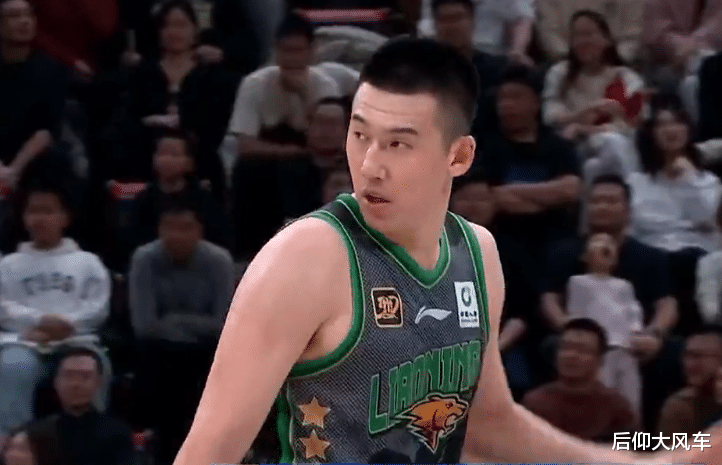The second battle between Liaoning and Xinjiang ended with a bang, as the weakened Liaoning team ultimately defeated Xinjiang by a 26-point margin, achieving a satisfying revenge victory. In this match, Liu Wei was convinced of their defeat and stated after the game that Liaoning had given them a lesson, and he would send a message to Yang Ming to inquire about how they managed to overcome them with a weakened lineup. However, Liu Wei might have been being polite, as he was well aware of how Xinjiang lost the game. Ultimately, it was because Liaoning used a shorter rotation and displayed a more aggressive offensive and defensive performance.
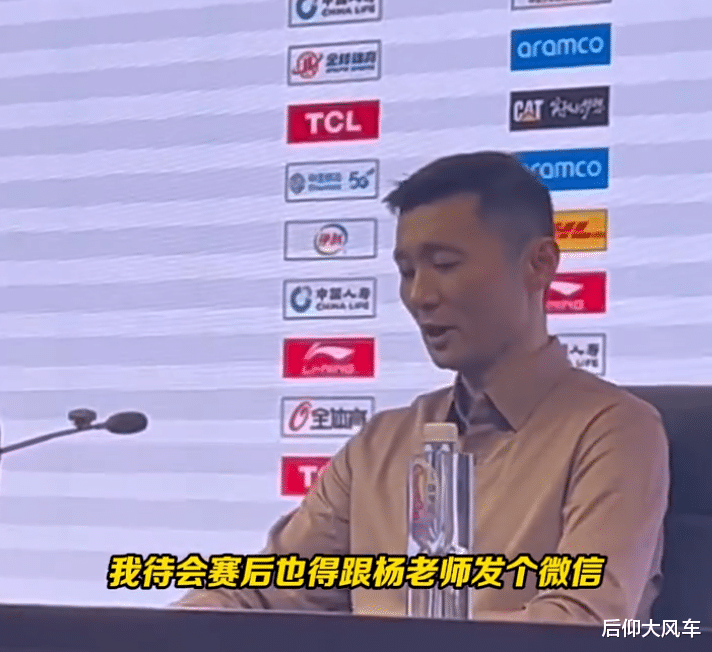
Despite only being able to register 11 players, Liu Wei rotated more players than Yang Ming in the first three quarters, but no matter how he deployed his troops, he could not reverse the unfavorable situation on the court. This was mainly due to the three foreign players lagging in scoring output, especially Peterson, who, along with Xierzati, who performed well in the previous two games against Beikong and Shanxi, also scored low in this game, failing to provide continuous firepower for Xinjiang's perimeter. Overall, Xinjiang also lost to themselves, as they did not adjust their mentality well and did not anticipate that Liaoning was coming to fight to the death.

In the first three quarters, Liaoning's six main players were on the court, and five of them played to their expected level, with two performing above expectations. These two were Wells, who scored 50 points, and Wang Lanqin, who scored 20 points with an 8 out of 11 shooting record. In other words, there were fewer players dragging the team down on Liaoning's court compared to Xinjiang. So, who is the one dragging the team down within Liaoning?
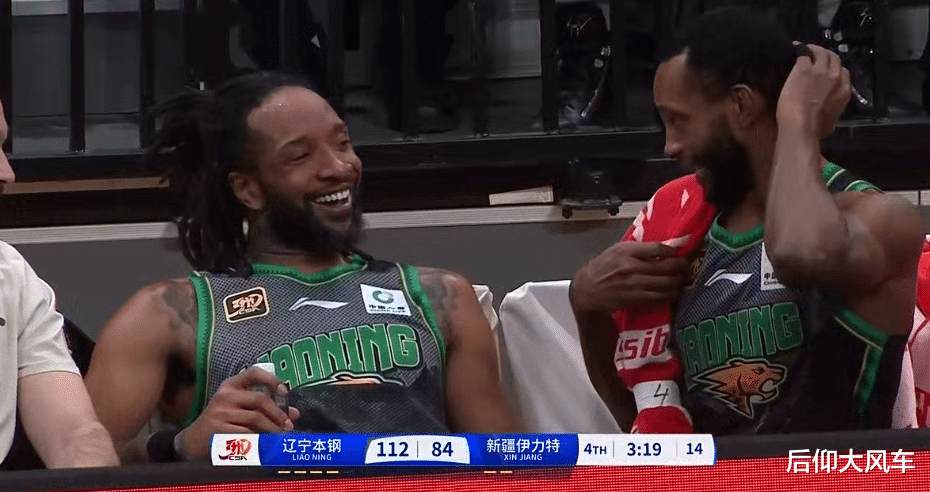
First, we can rule out Wells and Wang Lanqin. Secondly, we can also exclude Fergie, who handed over the task of single-handedly solving problems to Wells in this game. He took on the role of Zhang Zhenlin and Cong Mingchen, focusing on catch-and-shoot and defense while occasionally playing as an organizer. Fergie did not drag the team down, as under his defense, Peterson, Xierzati, and Yili Fula of Xinjiang all missed their shots. The three Liaoning guards can be excluded, leaving only the frontcourt to look at. The "Xuanming Two Elders" played hard in this game, with Han Dejun scoring 11 points, grabbing 13 rebounds, and providing 4 assists in 32 minutes of play. He reclaimed the court from the previous Liaoning-Xinjiang battle where he lost to Li Yanzhe, so Han Dejun can be ruled out.
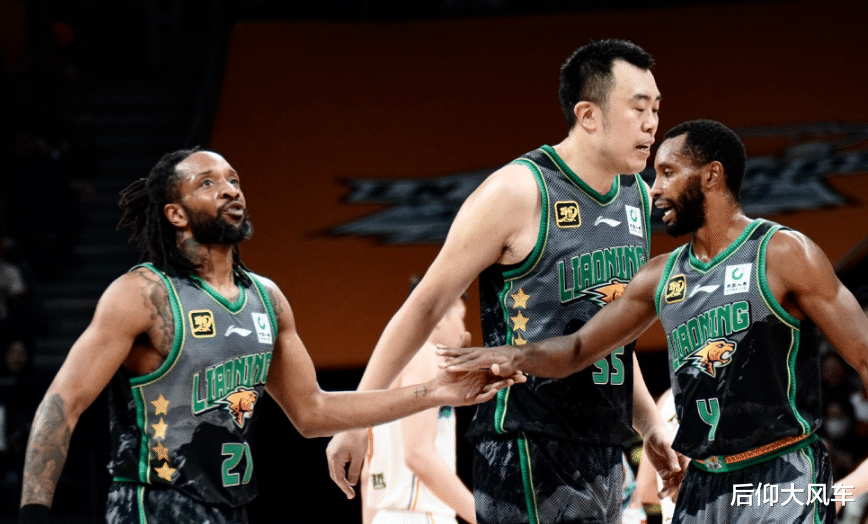
Li Xiaoxu can also be excluded. Although Li Xiaoxu only scored 5 points and grabbed 7 rebounds, with only 2 points in the first three quarters, his plus-minus value was quite high, second only to Wells at +29. Whether it was during garbage time in the fourth quarter or the desperate stages of the first three quarters, Li Xiaoxu performed outstandingly. His defense under the basket and his ability to snatch rebounds were key to Liaoning's victory. In this game, the "Xuanming Two Elders" mostly did nothing else but desperately grab rebounds, creating opportunities for Wells' offensive output. Han Dejun grabbed 6 offensive rebounds, and Li Xiaoxu grabbed 3, with the two elders' total offensive rebounds only one less than Xinjiang's entire team, effectively turning Li Yanzhe and Aizimaiti into Xinjiang's liabilities.
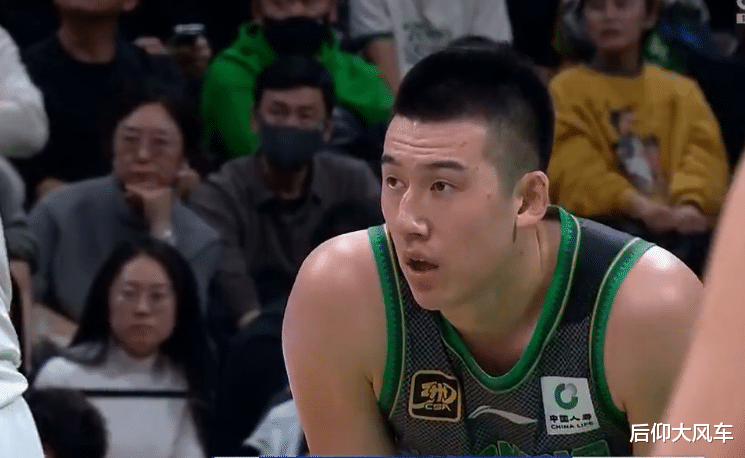
So, it seems that Fu Hao has once again become a liability. In this game, Fu Hao was the worst performer among the six main players, scoring only one point more than Li Xiaoxu despite playing more minutes, and grabbing only four rebounds. More crucially, during the middle of the third quarter when Liaoning led Xinjiang by 14 points, among the five Liaoning players on the court, only Fu Hao had a negative plus-minus value of -7. Xinjiang actually had a chance to further reduce the point difference in the third quarter, and the key opportunity was provided by Fu Hao. In the two minutes he played after replacing Li Xiaoxu in the third quarter, Liaoning's lead of 19 points was reduced to only 12 points by Xinjiang.

At 5 minutes and 56 seconds into the third quarter, Fu Hao missed a hook shot under the basket, which led to a Xinjiang counterattack. Hegen's three-pointer also missed, and Fu Hao lost the rebound battle with Aizimaiti under the basket, allowing Lawson to grab the ball and draw a foul. As a result, Liaoning lost 4 points, causing Yang Ming to call a timeout in anger. After this timeout, it was Wells' three-pointer that reignited Liaoning's momentum.

During the second quarter, Fu Hao's performance was even worse. In this quarter, he played for 8 minutes, scoring 0 points and grabbing 2 rebounds, missing all three attempts under the basket. The most absurd were the following two shots. Li Huyi provided him with an excellent assist, and Fu Hao used his signature move of driving baseline layups, but he missed the close-range layup.
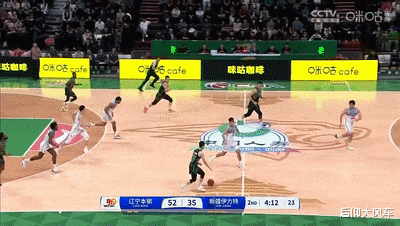
Even more absurdly, in the following play, Fu Hao followed up on a fast break and received an assist from Han Dejun, facing an almost open basket opportunity (Aizimaiti had already given up on defense), but Fu Hao somehow missed the easy two points again. Instead, he gave Xinjiang another counterattack opportunity, with Hegen assisting young player Yang Rui, who easily made a semi-open three-pointer. As a result, Liaoning lost 5 points in this exchange.

Throughout the game, Liaoning won by 26 points, but Fu Hao's personal plus-minus value was only +7. He was a liability in the first three quarters and only managed to correct his plus-minus value during garbage time in the fourth quarter. It's no wonder that some Liaoning fans expressed their dissatisfaction with him after the game: As a top-salary player, you're not worth the price. You miss easy baskets, leak on defense, and can't grab rebounds. How dare you laugh after the game?
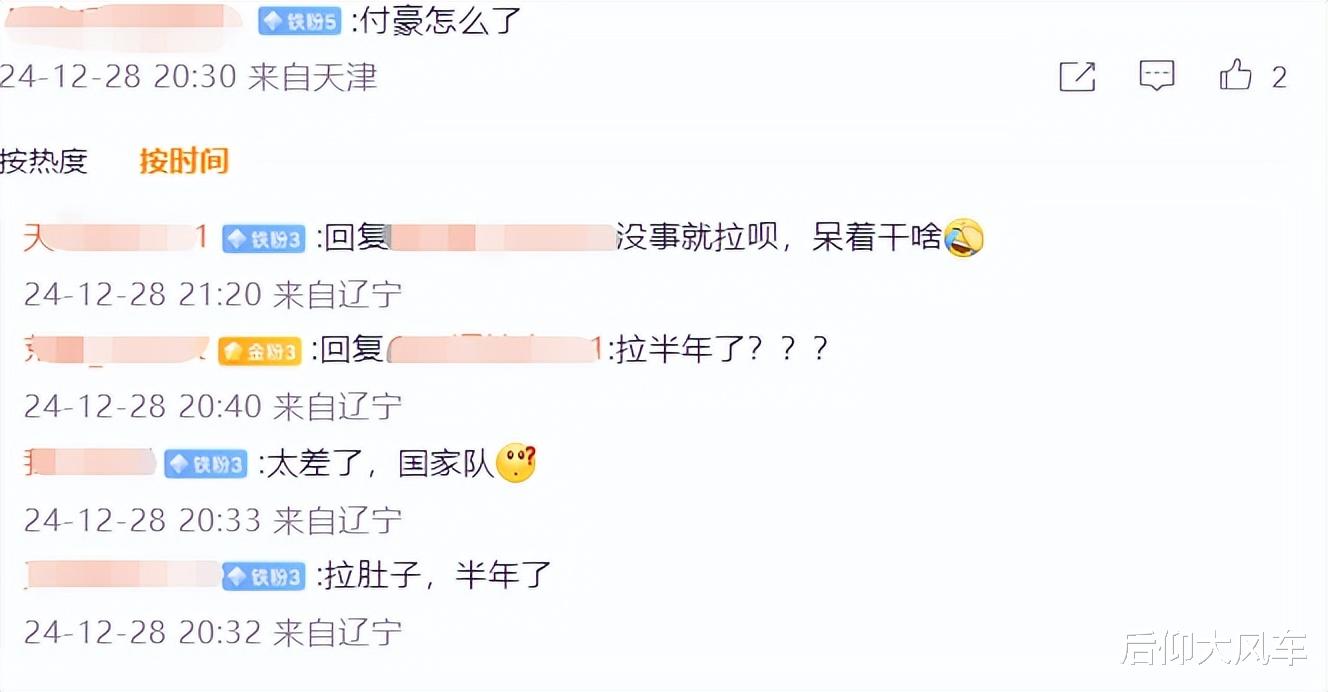
Some passionate Liaoning fans even requested Yang Ming to use him less in the next game against Guangdong team. Of course, these are just angry words. In fact, Fu Hao himself is a forward with considerable scoring potential, but his shortcoming lies in his reliance on his on-court feel and state. When his feel is good, he can score in a row, making it impossible for anyone to stop him (Guangdong team knows this best).

When his feel is poor, he can even miss easy baskets, making fans both love and hate him. At present, Yang Ming really can't afford to bench Fu Hao like he did with Zhang Zhenlin and Wang Lanqin. Before Liaoning finds the most suitable big foreign aid, Fu Hao remains Yang Ming's indispensable frontline mainstay. If he plays well, it's a bonus for Liaoning, but if he doesn't, Liaoning will just have to accept the consequences.
